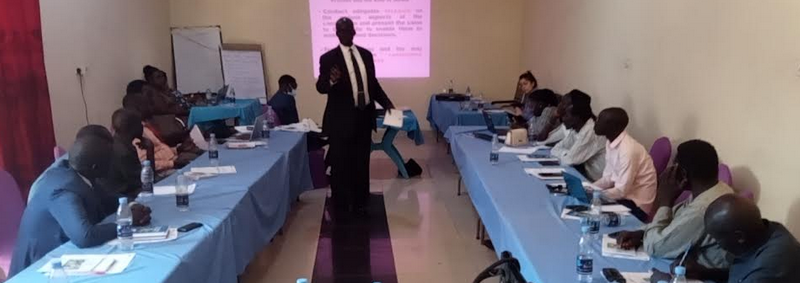The Union of Journalists of South Sudan (UJOSS) in collaboration with UNESCO and UNWOMEN on Tuesday started a three-day capacity-building training for journalists in Aweil Town in Northern Bahr el Ghazal State.
According to UJOSS Secretary General Daniel Kuany, the training will cover reporting on the constitution-making process, gender, human rights, ethics, accuracy, safety, and protection among others.
“There are 25 journalists being trained in Northern Bahr el Ghazal State and it is the same training we did in the other states we have been visiting. We started the training in Eastern Equatoria, Jonglei, Western Equatoria, Western Bahr el Ghazal, Upper Nile, Unity, and Central Equatoria states,” he said. “Lakes State and Warrap State are the next locations which will host such capacity building training for journalists.”
The trainees expressed their desire to learn about and internalize the range of topics that will be taught during the workshop.
A participant, Hou Akot Hou, said he would like to learn about conflict-sensitive reporting in order to mitigate conflict in his community.
“I would like to know more about the constitutional-making process and conflict-sensitive reporting and how journalists can ensure that their reporting does not escalate or incite communal violence,” he said.
Meanwhile, broadcast journalist Julia Gabriel Jonga said she wanted to learn about human rights and the protection of journalists.
“I hope to learn about human rights, how journalists are protected and how a journalist can perform better,” she said.
Speaking on behalf of donors, Doreen Laboka, a communication specialist with UNESCO, said her agency is committed to supporting freedom of expression, access to information, and media pluralism.
“Our mandate as UNESCO is to promote freedom of expression, access to information, and media pluralism,” she said. “Part of the work (we do) is capacity building and enhancing skills of journalists in reporting.”




